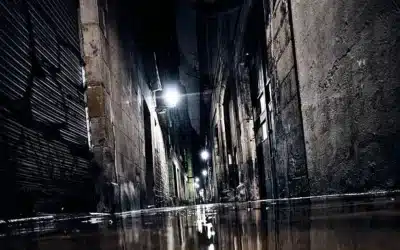F. A. Hayek, the Nobel-Prize-winning economist of the Austrian tradition, provided a possible answer to the question posed in the title. Although Hayek (1899-1992) to my knowledge had nothing to say about the climate controversy, his views on macroeconomics met with a similarly critical attitude from those who practiced economics at a level far, far removed from individual action. He too was in essence called a science denier, in this case the science was economics. Here’s what he said when contrasting the method of the natural sciences of “simple phenomena” with the methods of social and other sciences of “complex phenomena” (transcribed from an interview at 33:00):
All the things I have stressed–the complexity of phenomena in general, the unknown character of the data, and so on–really much more points out limits to our possible knowledge than our contributions which makes specific predictions possible. This incidentally [is] another reason why my views have become unpopular. Conception of scientific method became prevalent during that period [the 1930s, when he worked on his “pure theory of capital”] which valued all scientific theories from the nature of specific predictions at which it would lead. Now somebody who pointed out that specific predictions which it could make were very limited and that at most it could achieve what I sometimes call “pattern predictions,” or predictions of the principle, seemed to the people who were used to the simplicity of physics or chemistry very disappointing and almost not science. The aim of science in that view was specific prediction, preferably mathematically testable, and somebody who pointed out that when you applied this principle to complex phenomena, you couldn’t achieve this seemed to the people almost to deny [!] that science was possible.
Of course my real aim was that the possible aims must be much more limited once we’ve passed from the science of simple phenomena to the science of complex phenomena. And there people bitterly resented that I would call physics a science of simple phenomena, which is partly a misunderstanding because the theory of physics [runs?] in terms of very simple equations. But that the active phenomena to which you have to apply it may be extremely complex is a different matter…. [On the other hand, in “intermediate fields” such as biology and the social sciences] their complexity becomes, I believe, an absolute barrier to the specificity of the predictions that we can arrive at. Until people learn themselves that they cannot achieve these ends, they will insist [on] trying and think somebody [who] believes it can’t be done is just old-fashioned and doesn’t understand modern science.
The relevance to the climate debate ought to be clear. Climate realist-optimists often point out that climates are too complex–with too many interacting and moving parts–to be spoken of and “projected” in the simplistic way that the alarmists routinely try to do. So they naturally dislike when credentialed scientists come along and point this out. This is why alarmists outrageously call the realist-optimists “deniers” and worse.
































